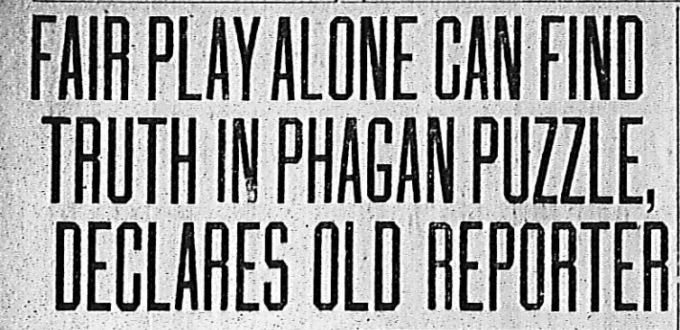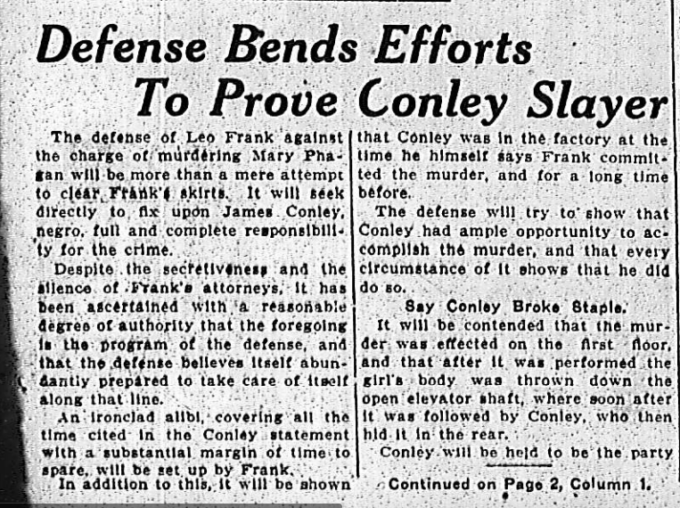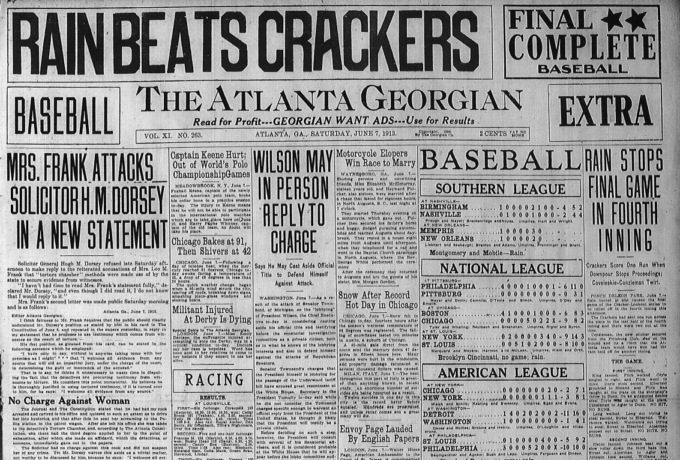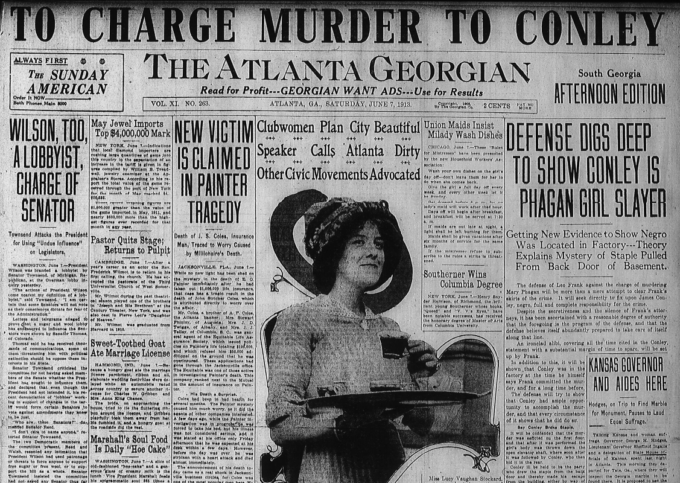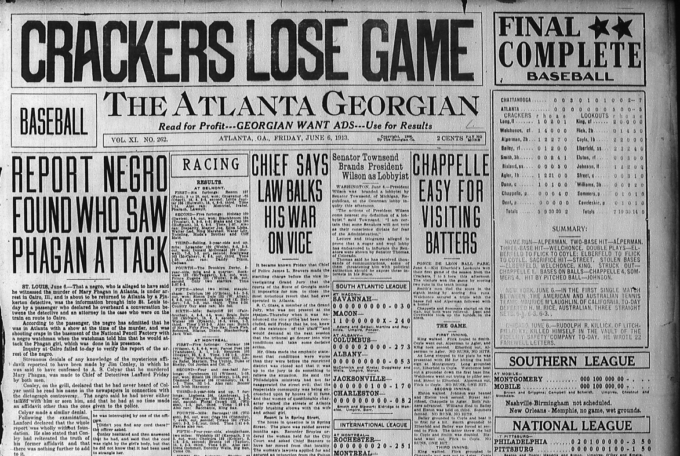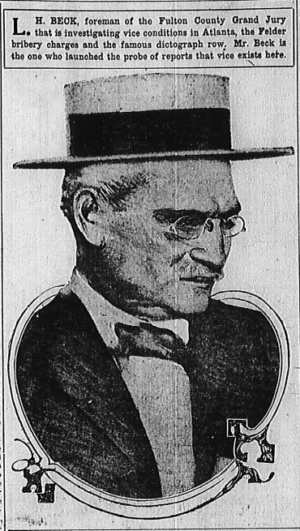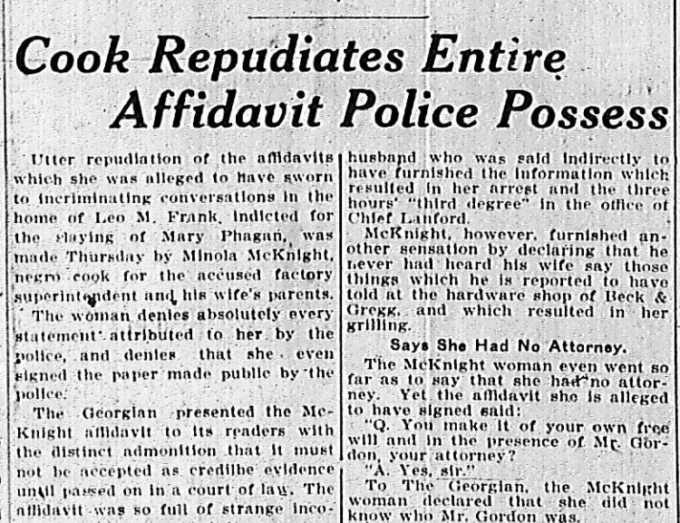 Another in our series of new transcriptions of contemporary articles on the Leo Frank case.
Another in our series of new transcriptions of contemporary articles on the Leo Frank case.
The Atlanta Georgian
Friday, June 13, 1913
Rosser Declares ‘Gibbering Statements’ Point Out Sweeper as Guilty of Slaying.
James Conley, self-confessed accessory after the fact in the murder of Mary Phagan, Friday was discharged by Judge L. S. Roan entirely from the custody of the State on the petition of Solicitor Dorsey.
Technically free, Conley was at once rearrested and held by the police on suspicion in the murder mystery. The action of Judge Roan constituted a victory for Solicitor Dorsey, who was fighting to prevent the authorities returning Conley to the Tower, from which he had been taken on the representation of his attorney, William M. Smith, that the negro was threatened and intimidated in the Tower.
Luther Z. Rosser, attorney for Leo Frank, made a bitter protest against the liberation of the negro, which, in the opinion of Judge Roan, was the only legal alternative of returning him to the county jail. He made a still stronger protest in a formal written statement placed on file as a record in the case.
Accuses Conley as Slayer.
In this he charged that the negro’s series of “gibbering and incoherent statements,” together with the attendant circumstances of the crime and Conley’s subsequent actions, pointed to him as guilty of the murder beyond any reasonable doubt.
Less than ten minutes was occupied in the disposal of the case. Judge Roan did not read either the statement of Attorney Rosser or that of Attorney Smith, who submitted the reasons he wished his client kept at the police station. The dispatch with which the petition was acceded to was a complete surprise. A protracted and hard fought legal battle had been expected.
Judge Roan said that he was without authority to hold the negro in the custody of the State so long as he had no formal application from either side. The Solicitor, he said, was asking for the release of the prisoner, and Attorney Rosser had characterized his statement only as a “suggestion.” Continue Reading →



 Another in
Another in  Another in
Another in  Another in
Another in 
 Another in
Another in 

 Another in
Another in 